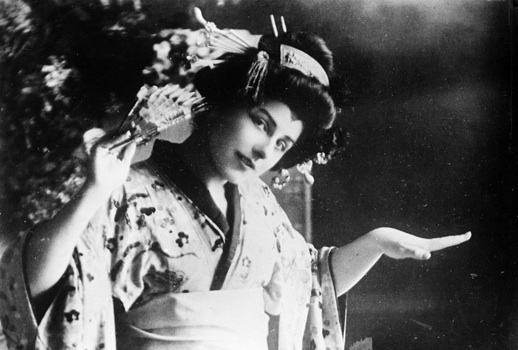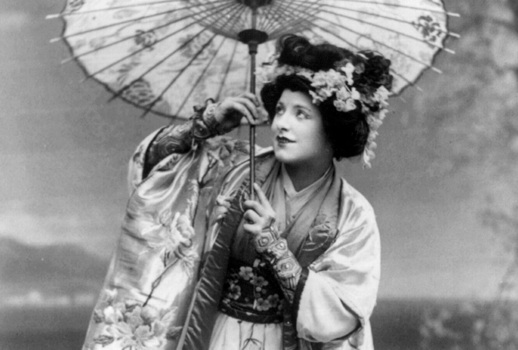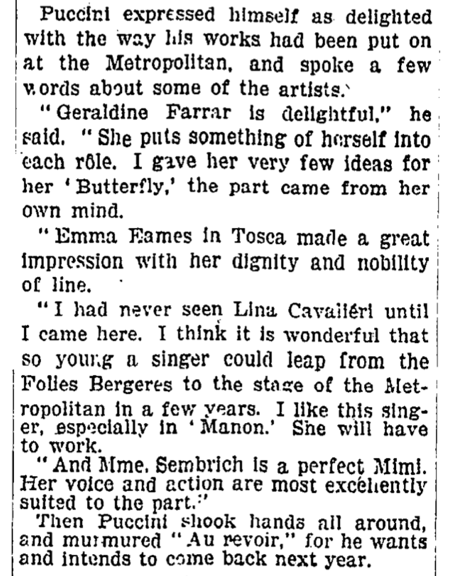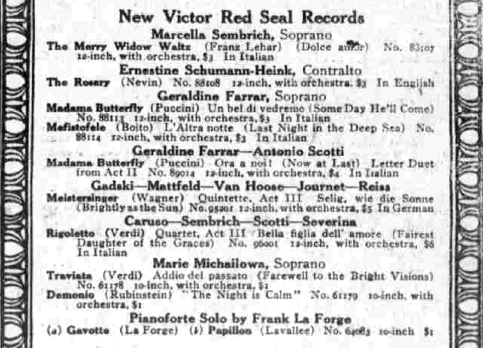
Farrar’s Butterfly utterly won over the normally hard-boiled Henry Krehbiel of the New York Tribune. In addition to the paean quoted above, he gushed, “Madama Butterfly has brought to Miss Farrar another opportunity to disclose her splendid gifts of dramatic representation. . . . Her growth into womanhood and from womanhood to tragic stature is beautifully presented without abruptness and with real power. As she is a beautiful vision, her triumph was complete.”
A lengthy overnight review of this performance, as archived on the New York Times website, offers both a sense of how quickly Farrar became a critic’s darling and a perhaps surprising indication that even back then reviews didn’t always expend paragraph upon paragraph minutely detailing every vocal effect and/or tic in the performance. Of Farrar’s vocalism, Richard Aldrich notes merely, “The music she sings with charm, with intense dramatic fervor.”
Farrar was barely halfway through her Met season, and already she was news even when she wasn’t singing. When the Times interviewed Puccini on February 28 of that year, she was the first singer to be mentioned:
In 1908 members of the Met’s premiere Butterfly cast were assembled together by Victor to record what amounts to an “original cast” album of the opera.
The Farrar/Scotti disc of the Letter Duet advertised here sold for $4.00, about the cost of a prime orchestra seat for a Met performance in those days.
These discs are so famous we need hardly revisit all of them here. There is, however, a recording of Butterfly’s entrance made a little over a week after the premiere, on February 19, that suggests the freshness and charm of Farrar in a role she would go on to sing 139 times with the Met.
So far, Geraldine had remained demure, even shy in her statements to the press, but that would soon change, as we will see next week.






